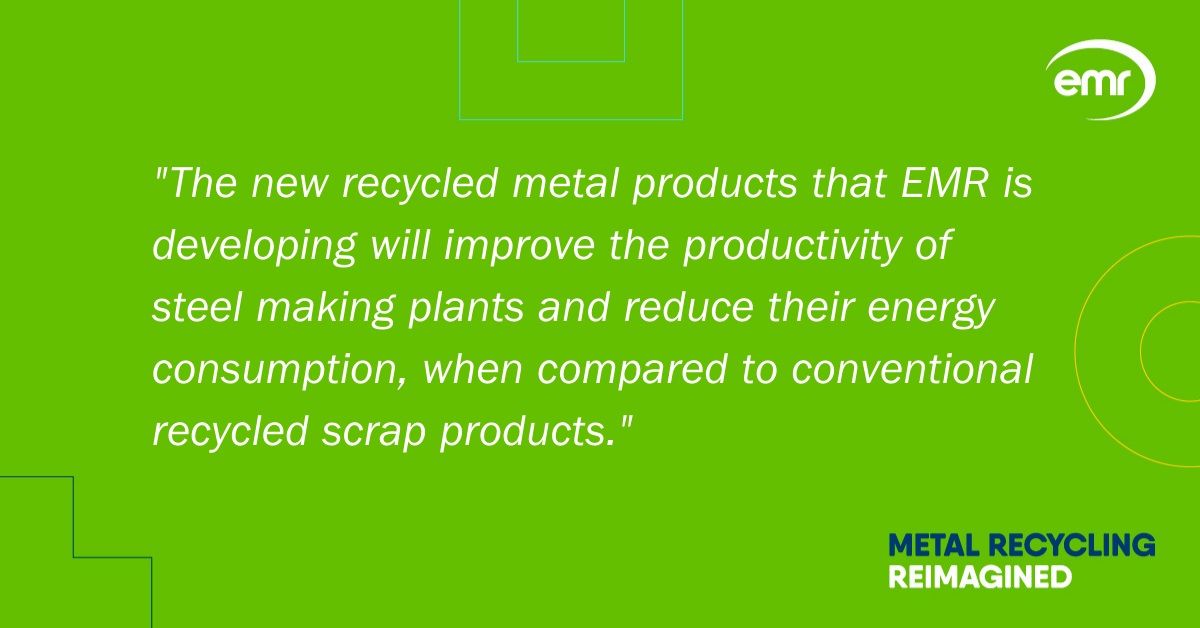CHOOSE
A DIFFERENT TERRITORY
To truly count as a leader in sustainability, EMR must support the whole supply chain in achieving net-zero.

These are our Scope 3 emissions (indirect emissions upstream and downstream in the value chain) and, working with the Science-Based Target initiative (SBTi), EMR has committed to reducing them to zero by 2040. To achieve this, EMR needs to ask itself one very simple question: What can we do to help?
One area we can help our supply chain partners to achieve their sustainable ambitions is by providing our suppliers with a zero-carbon recycling service for their end of life products and materials. By using renewable energy, investing in electric vehicles and equipment, and rethinking the way we do business, we’re already well on the way to delivering this goal.
But there is also room for us to innovate further, by delivering new, low carbon and high-quality materials for our customers, the manufacturers who will create the next generation of sustainable products.
These cleaner, inherently low-carbon, recovered materials, which avoid incurring the higher carbon impact of materials made with primary materials extracted from the ground, will allow manufacturers to create high-quality low-carbon green steel, to take one example.
And what’s transformative for our industry is that, because consumers and governments increasingly demand the use of recycled materials, the low-carbon materials that EMR supplies are likely to command a premium when compared to virgin metal or plastic.
The new recycled metal products that EMR is developing will improve the productivity of steel making plants and reduce their energy consumption, when compared to conventional recycled scrap products. This means the commercial case for green steel (and aluminium or copper) is strong for both EMR and its customers.
This is an exciting opportunity for EMR but is only one part of the story. We’re looking to move beyond what we describe as the ‘commoditised procurement model’ that has defined the metal recycling industry for decades, if not centuries.
What does that mean? EMR is looking to build strong relationships with its supply chain partners. Increasingly these partners recognise that the challenges of becoming a sustainable industry require closer collaboration than the simple ‘customer/service provider’ dynamic based on responsive customer service that we operate today.
Late last year, we announced two new projects, RECOVAS and REAP, which are partnerships with the automotive industry to create circular supply chains for electric vehicle (EV) batteries and the magnets in electric vehicle motors, respectively.
By building innovative new supply chains like this together, EMR and its partners are ensuring that vital metals are kept and re-used right here in the UK while more efficient, sustainable processes can be developed in line with our net-zero goals.
Completing the task of helping our customers to reach net-zero and decarbonising our supply chains is one of the biggest challenges facing the metal recycling industry, which is why our target for getting there is 2040.
Thanks to the drive and innovation of our teams, EMR is getting to work on delivering this target now. The next few years will see us build new partnerships, invest in new technology and improve our processes to help our customers reach net-zero and to create a circular economy that protects our environment and secures our resources.
It’s a big job but one we’re ready to talk to our customers about today.
Read about our sustainability commitments and our plan to be net-zero by 2040.